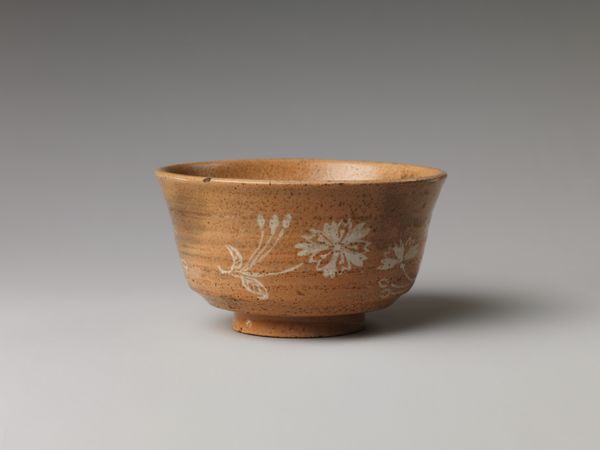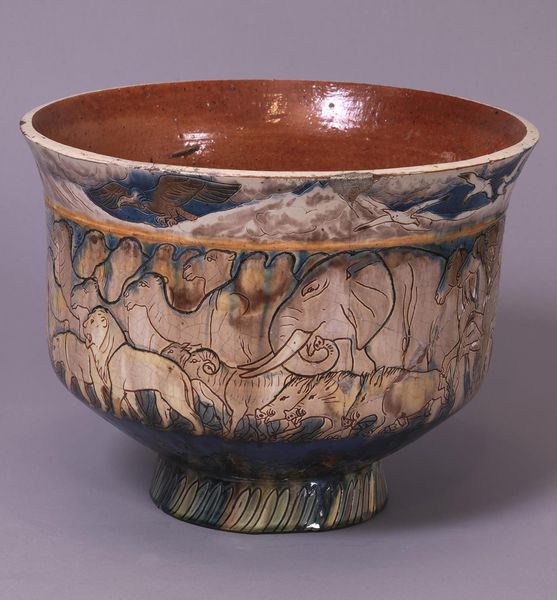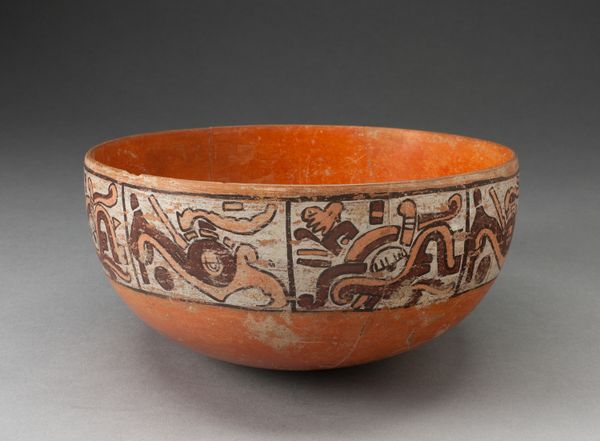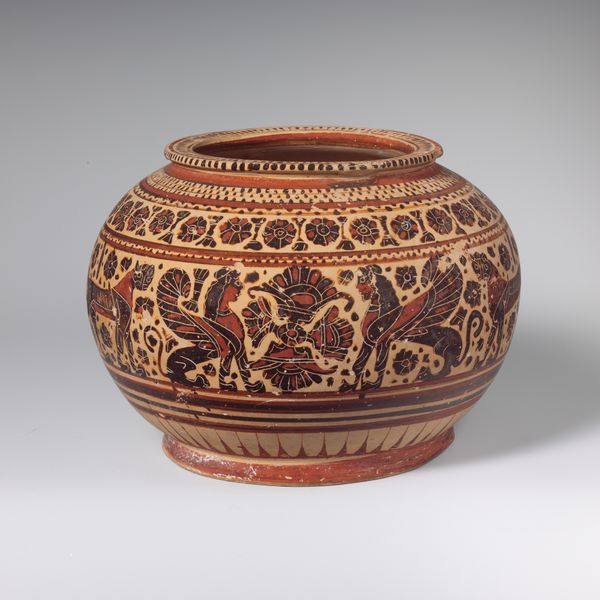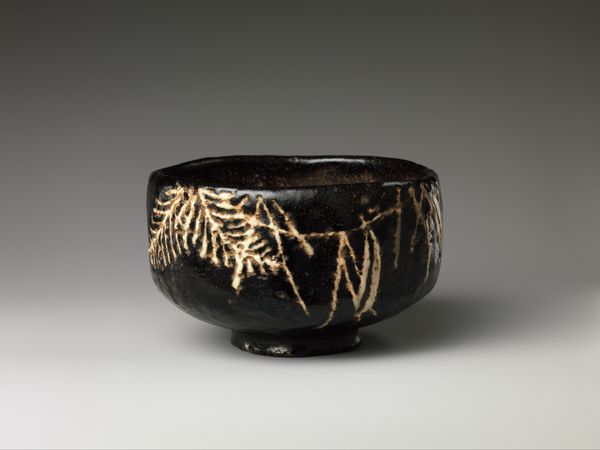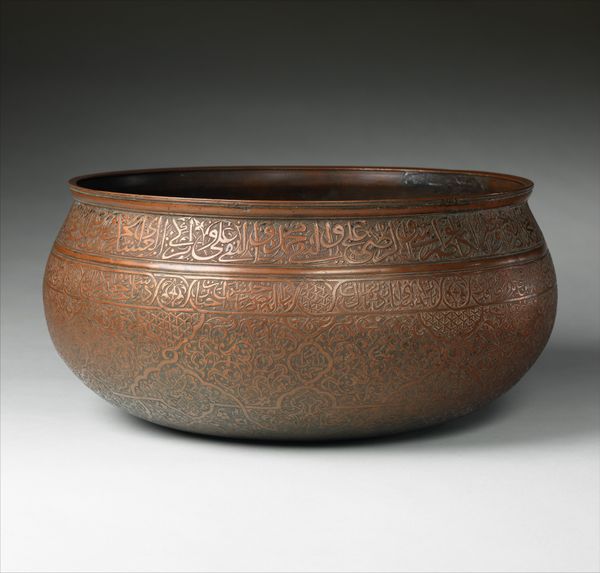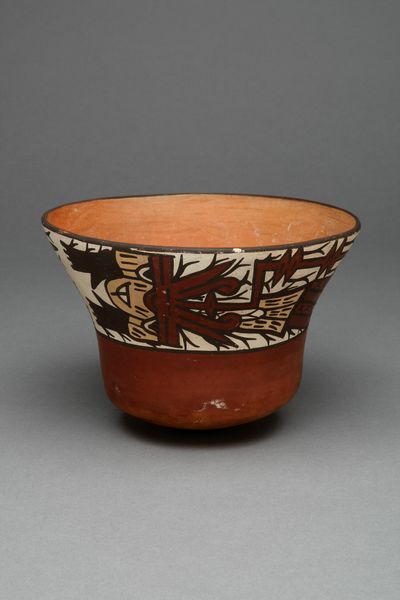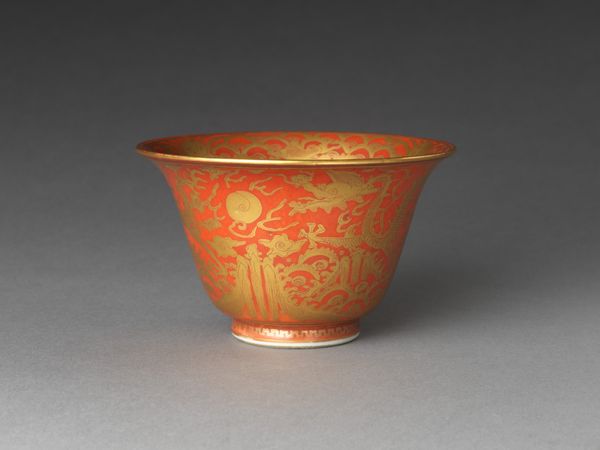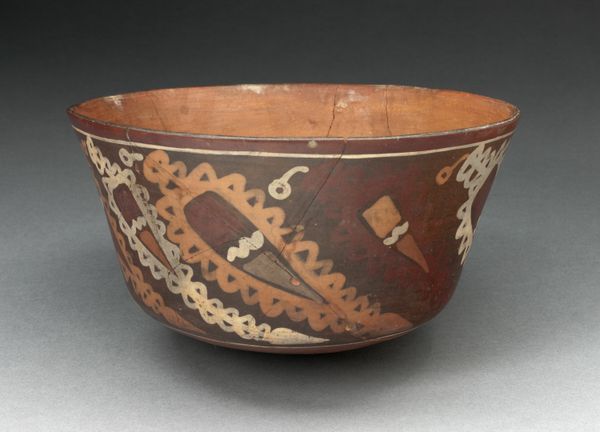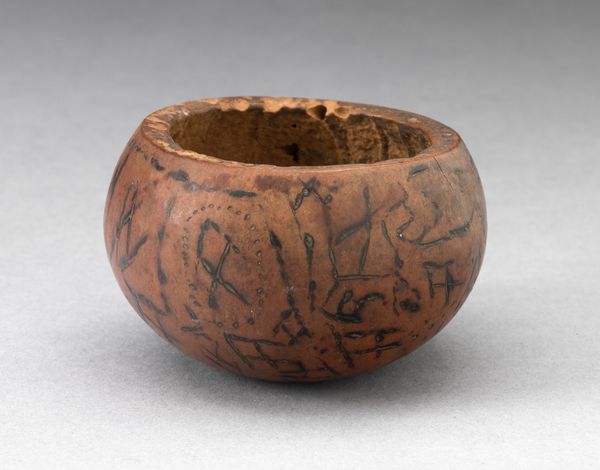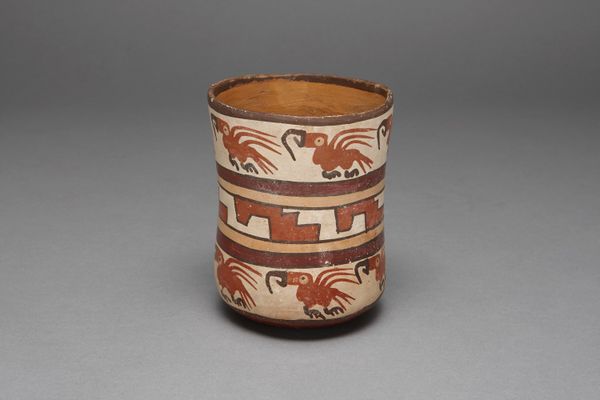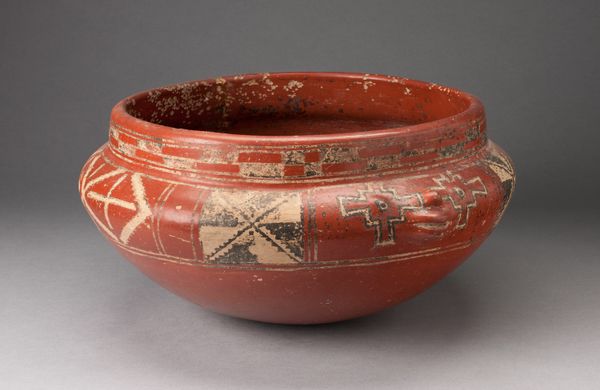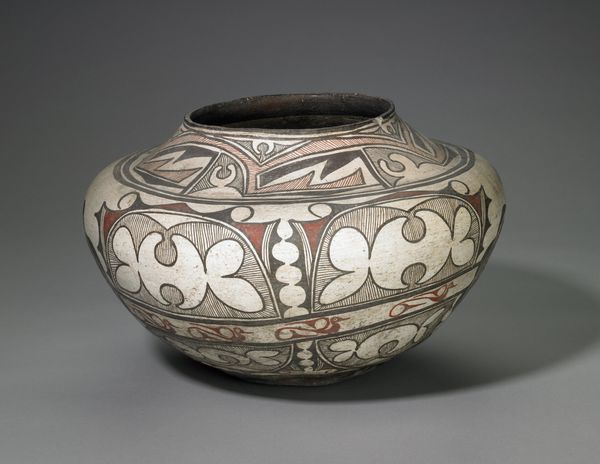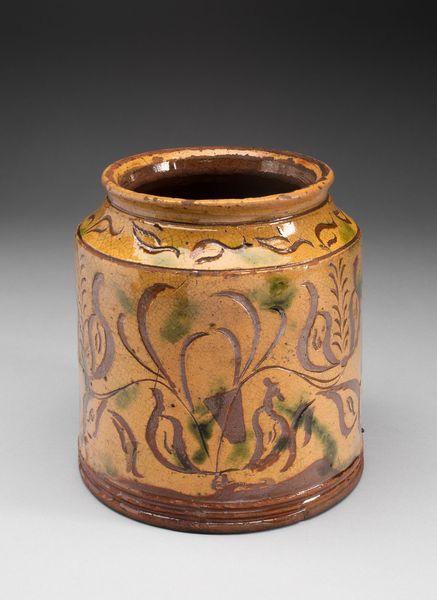
ceramic
#
asian-art
#
ceramic
Dimensions: 3 5/8 × 4 3/4 × 4 3/4 in. (9.21 × 12.07 × 12.07 cm)
Copyright: Public Domain
This is a tea bowl with cranes, made by Raku Ryōnyū in Japan in the late 18th or early 19th century. The red ceramic surface serves as a canvas for delicate depictions of cranes, symbols deeply embedded in the cultural psyche of Japan. Cranes embody longevity, fidelity, and good fortune, their image carefully chosen to stir feelings of peace and well-being. Consider the crane motif; from ancient Chinese mythology, where it carries immortals, to its presence on Japanese screens and kimonos, the crane transcends mere avian representation. It embodies a silent language passed through generations, a visual echo resonating with hopes for a long and prosperous life. This visual echo can be traced even to modern times, where the act of folding paper cranes as a wish for recovery has become an international symbol of hope, revealing the unbroken continuity of human emotions and aspirations. The enduring presence of the crane motif speaks to our collective yearning for transcendence. Its delicate form and powerful symbolism engage viewers on a profound level, creating a lasting impact on the subconscious, echoing through centuries of cultural and artistic expression.
Comments
minneapolisinstituteofart about 2 years ago
⋮
This pair of red and black tea bowls features incised designs of cranes and turtles, both auspicious motifs associated with longevity. The underside of each bowl is marked with the character Raku, indicating that it was made by an artist in the famous Raku family of master potters, in this case Raku Ryōnyū the family’s ninth-generation head. Raku wares are generally hand-shaped—as opposed to being thrown on a wheel—and are fired at relatively low temperatures. With a history dating to the end of the sixteenth century, the Raku family workshops counted many of the capital’s elite tea masters among their patrons.
Join the conversation
Join millions of artists and users on Artera today and experience the ultimate creative platform.
